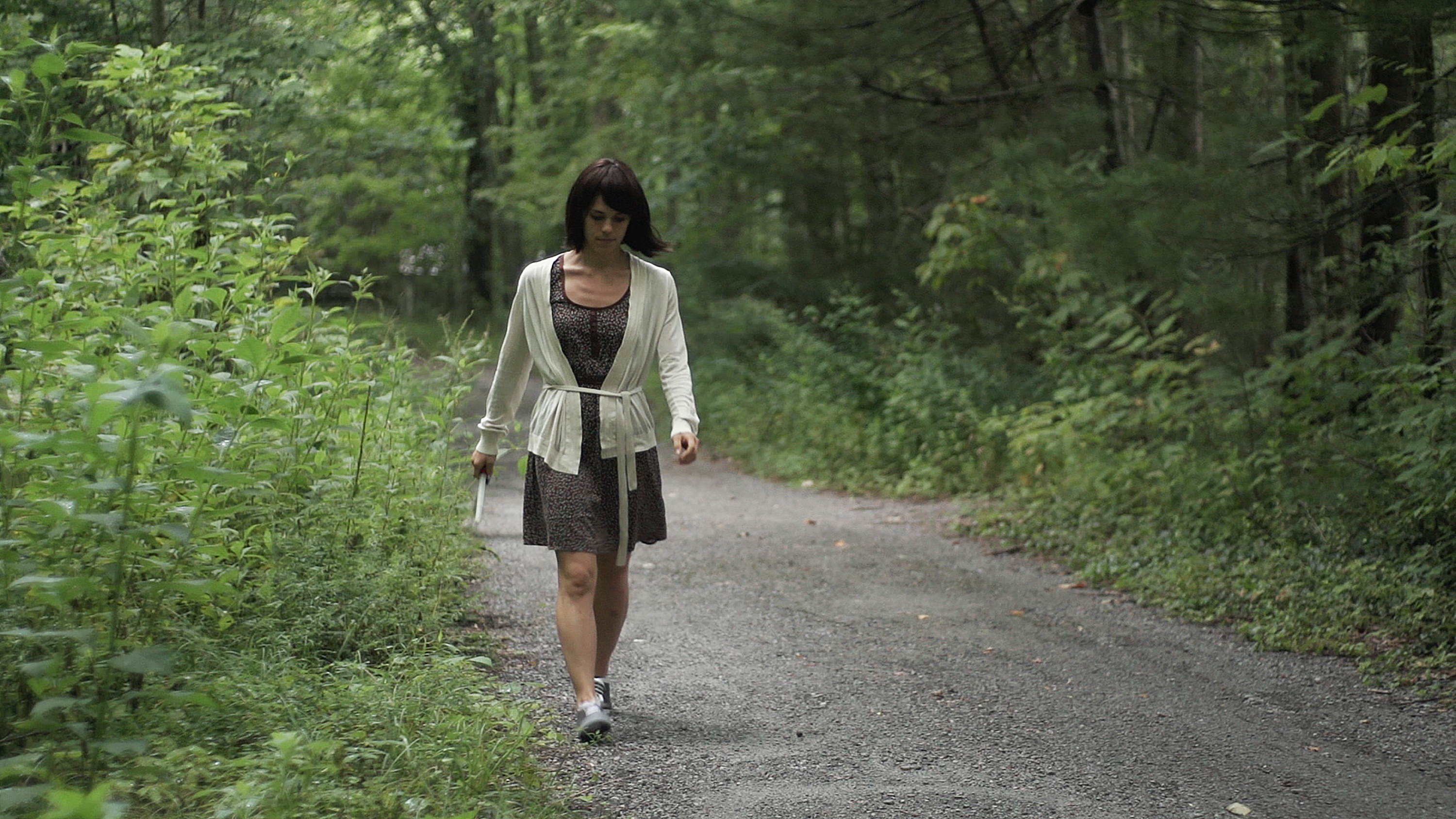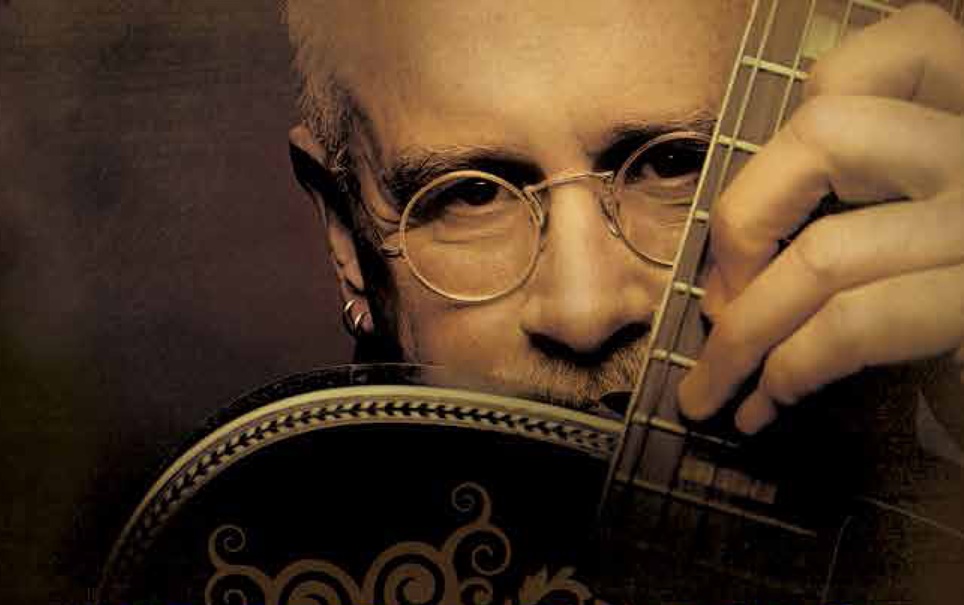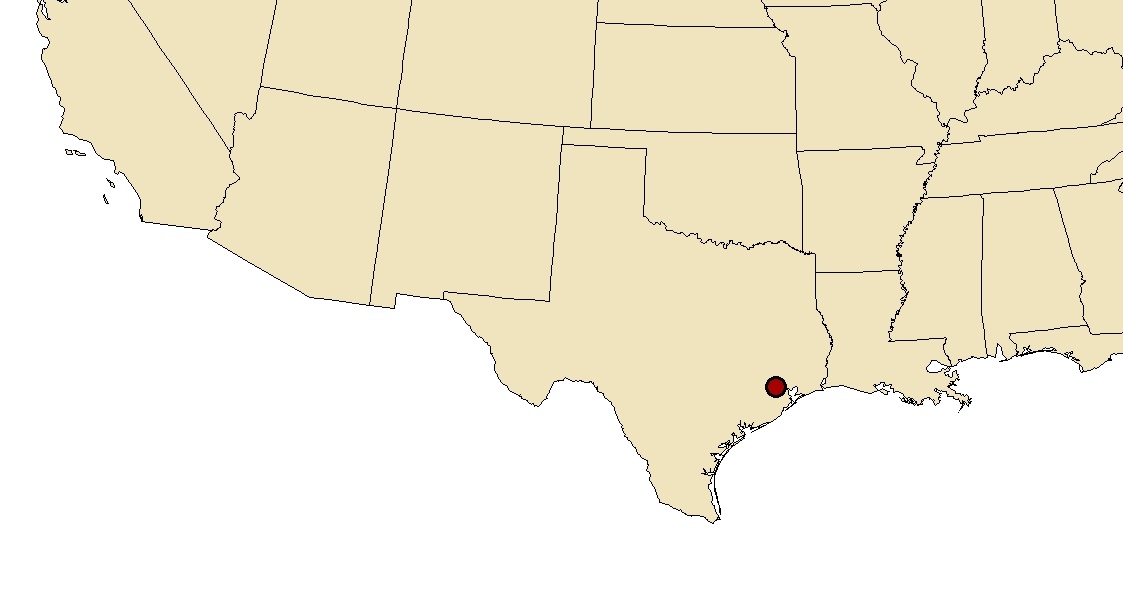Two Days, One Night & Something, Anything
Two recent films—Something, Anything and Two Days, One Night—have just become available now on various View On Demand services like Netflix, iTunes, Vudu.com, YouTube, and Google Play. And they’d make a memorable double feature, due to all of the things they have in common.Read more
Bruce Cockburn: Psalms in Seattle
I wish you could have been at the Fremont Abbey last Thursday night with me for an event that lived up to all my hopes and expectations...
Bruce Cockburn played a short concert before receiving the honor of the Twelfth Annual Denise Levertov Award.
What is the Denise Levertov Award? It’s a prestigious honor given by the good people of Image “to an artist or creative writer whose work exemplifies a serious and sustained engagement with the Judeo-Christian tradition.”
Past recipients of the award include poets Scott Cairns, Luci Shaw, Madeline DeFrees, and Franz Wright; nonfiction writers Kathleen Norris, Thomas Lynch, Patricia Hampl, and Eugene Peterson; and fiction writers Bret Lott and Ron Hansen. The only musician who has received the honor previously is singer and songwriter Sam Phillips, and I cannot tell you what a joy it was for me to interview her onstage at that event.
https://www.youtube.com/watch?v=4PMSQjyaWRA
Image’s editor and publisher Gregory Wolfe interviewed Cockburn onstage during Thursday night’s festivities. If that interview becomes available for a larger audience in any way, I’ll be sure to announce that on my Facebook and Twitter accounts.
Cockburn spoke about the Psalms as he moved from song to song during his short, seven-song set. He called Psalm 23 one of the "pop hits" of the Bible, and mentioned that one of his songs was written to be "something like a psalm." That performance inspired me to write down some reflections on what Cockburn's music has meant to me over the past three decades... particularly that song. You can read those reflections at Christ and Pop Culture.
Q&O: Galaxy Quest, 2015's Best Record, & They Might Be Giants.
It's been a while since I've posted an installment of "Question and Overstreet." So here we go with the Q&Os....
These are some of the questions I've been asked this week — by readers, by friends, by coworkers, or by myself.
Question:
Are you excited about Galaxy Quest becoming a television show?
Overstreet:
When I saw that headline, I cheered. I think Galaxy Quest is a minor miracle of a movie — it's so much better and funnier than we had any right to expect. I'm happy whenever I think of it. And it still holds up after 16 years.
But then I started thinking — which is always a dangerous proposition.
Will they bring back the original cast? Very unlikely. And that cast had a wonderful chemistry. It's my favorite leading role from Tim Allen (indeed, the only Tim Allen performance I like outside of his work in the Toy Story franchise). Alan Rickman's self-effacing turn is a joy to behold. It was a star-making turn for Sam Rockwell, and thank goodness it was — his performance here gave us no idea of just how great he would become. Sigourney Weaver seemed to be having more fun than she'd ever had in a movie before. It's bizarre to watch now and see that Rainn Wilson had a role in it, since nobody knew who he was back then. But the highlight of the movie for me has always been Enrico Colantoni of Vernonica Mars, whose absolutely insane turn as an alien is truly inspired.
They're what I love about the film... but I have no reason to think any of them will be back. The chances of the show-runners finding that kind of chemistry with a new set of actors are extremely slim.
The most encouraging sign: The show will be written by Robert Gordon, who wrote the film.
But I would trade this in a heartbeat for the return of either Twin Peaks or Firefly.
Question:
What's the most recent book of poetry you've actually purchased because you wanted to? (Buying it for schoolwork doesn't count.)
Answer:
Just this week, I picked up Jane Hirshfield's brand new collection The Beauty. And by the way, here's a great interview in which the interviewer asks, "What makes a poem 'good'?" And she replies:
You feel a poem is good if, having read it, you find yourself at its end a different person -- larger, more permeable, wilder, more awake, more informed, more saddened, more free. The specific flavor or quality of the change almost doesn’t matter, so long as the movement is toward increase rather than narrowing. Galway Kinnell once said, “The title of every good poem might be 'Tenderness.'
Question:
What's your favorite album of 2015 so far?
Overstreet:
I'm not ready to say just yet. But I will talk about several of my top picks in a few weeks, and you're invited to the even. It'll happen at The Kindlings Muse, a live podcast recording at Hales Brewery and Pub, on Monday, May 11. Dr. Jeff Keuss will host a discussion with a panel that includes Chris Estey, a music critic for The Stranger and Seattle Weekly, show producer Anna Miller, and myself!
I see They Might Be Giants have a new album called Glean. What are your favorite They Might Be Giants albums? I think their third album was best.
Overstreet:
I'm right there with you. Flood is, for this Giants fan, the masterpiece.
But there are several TMBG albums I love. My top 5 would be
1. Flood
2. They Might Be Giants (the self-titled debut)
3. John Henry
4. Apollo 18
5. Lincoln
And I just ordered my copy of Glean.
Join me for a talk about 2015's best records so far
On Monday, May 11, at Hale's Brewery and Pub in Seattle, you can join Dr. Jeff Keuss, Anna Miller, music critic Chris Estey from The Stranger and Seattle Weekly, and me for an evening of discussion about the most exciting and meaningful music we've heard in 2015 so far.
It's the live podcast recording of The Kindlings Muse, so we'll be sampling songs, taking questions, and raising glasses. Reserve your seats here!
What's your favorite record of 2015 so far? Let me know, and I'll try to make find time to mention it during the live podcast recording of the show.
Here's my list of favorites so far...
- Sufjan Stevens - Carrie & Lowell
- Sleater-Kinney - No Cities to Love
- Rhiannon Giddens - Tomorrow is My Turn
- Laura Marling - Short Movie
- Roebuck "Pops" Staples - Don't Lose This
- The Lone Bellow - Then Came the Morning
- The Decemberists - What a Terrible World, What a Beautiful World
- Bettye LaVette - Worthy
- Bjork - Vulnicura
- Alabama Shakes - Sound & Color
Madonna, Bettye LaVette, Joe Henry: Whose version of Stop is best?
The new album by Bettye LaVette, produced by Joe Henry, features some excellent test cases when it comes to the subject of cover songs.
Titled Worthy for its inclusion of a Mary Gauthier cover, the album boasts some truly imaginative renditions of classics. There’s a Beatles cover—“Wait”—that’s even more audacious than U2’s big-screen Beatles recovery. She knocks a new version of Bob Dylan’s “Unbelievable” out of the park. Then there’s an almost unrecognizable version of “Undamned” from my favorite Over the Rhine record, The Long Surrender (where it was sung by Karin Bergquist and Lucinda Williams).
And then there’s LaVette’s performance of Joe Henry’s own “Stop,” from his album Scar.
https://www.youtube.com/watch?v=vEA69LX9Az8
“Stop,” as a matter of fact, gives us a prime example of a song that seems new every time it resurfaces. Whatever the singer is talking about, it’s more important to him than love, than the sun shining, than the changing seasons. It suggests a loss of all reason and perspective. An addiction. It seems . . . unhealthy. But depending on how you sing it, it might be about drug addiction, it might be about a lover’s obsession, or. . . who knows?
This week at Christ and Pop Culture, I took a look at the various cover versions of the song, and gave some thought to other songs that have been celebrated — or spoiled — by good and bad cover versions.
Check out the full column here.
Harrison Ford is back in character!
We held our breath.
The Lucasfilm logo came up.
We cheered.
Familiar music...
Familiar sights...
And then...
Houston Baptist University welcomes Scott Cairns, Jason Harrod, Doug TenNapel, and me!
Dear Writers, Artists, Teachers, and Students,
Assistant Professor of Writing and Mass Communications
Faculty Advisor, The Collegian
School of Fine Arts
Houston Baptist University
University Academic Center, Room 145
Mother's Day prep: U2, Over the Rhine, Sufjan, St. Vincent, & more
In 2006, when U2’s Bono guest-edited an issue of The Independent, he interviewed comedian Eddie Izzard, and they explored questions about the influences of their mothers over their own desire for the affections of their audiences.
Bono has, of course, sung about this. In “Mofo,” rock’n’roll becomes his surrogate mother — a source of identity and inspiration as well as a channel for his cries to his absent mother.
And then, in the recent Songs of Innocence, he sings about her specifically in a song named for her: “Iris.”
https://www.youtube.com/watch?v=KDIPN2Zmm_w
Mothers — their counsel, their example, their presence, and their absence. Who can measure how much influence they have over our lives, our work, our creative expression?
I've written about two remarkable songs about mothers (one by Sufjan Stevens, one by St. Vincent) in today's edition of my weekly music column — Listening Closer — over at Christ and Pop Culture.
One of Over the Rhine's most beloved songs, "Only God Can Save Us Now," was inspired by Karin Bergquist's experiences visiting and caring for her mother in a nursing home. Listen to her testimony in this live performance:
https://www.youtube.com/watch?v=zuzvay_QPiA
Here's the studio version
https://vimeo.com/62958612
It wasn’t until my friend Martin Stillion recommended I listen to Merle Haggard’s song “Mama Tried” that I found the melodic inspiration for “Only God Can Save Us Now.” Listen closely to that Over the Rhine melody, and then check this out:
https://www.youtube.com/watch?v=luUK-b6X0ik
Stillion’s recommendation came when I asked my social-network communities about their favorite songs about mothers. (You can browse the whole list here.)
He also recommended two more: Bill Monroe, “Mother’s Only Sleeping” and Dock Boggs: “Mother’s Advice.”
Molly Smith Detweiler recommended one of my favorites: “Evensong” by The Innocence Mission:
https://www.youtube.com/watch?v=b0o3Awx1McM
While we’re on the subject of our mothers’ good counsel, I’m surprised nobody called out this one:
https://www.youtube.com/watch?v=em8JuUW-OOE
John Barach submitted this Mountain Goats’ track — “Matthew 25:21” —which comes with this preface: “I wrote the chorus on an airplane when I was going to California to say goodbye to someone dying too young. I wrote the rest of the song about six months later in a hotel room in Northampton, when the sting of her death was still fresh. It is my tribute to a mother whose absence is still felt daily by all who knew and loved her. I miss her so much."
http://www.youtube.com/watch?v=mFpQQM1pfUc
Ken Priebe points to The Beatles’ “Let It Be” and these Wikipedia notes: "McCartney explained that his mother — who died of cancer when Paul was fourteen — was the inspiration for the "Mother Mary" lyric. He later said, "It was great to visit with her again. I felt very blessed to have that dream. So that got me writing ‘Let It Be.’ He also said in a later interview about the dream that his mother had told him ‘It will be all right, just let it be.’”
https://vimeo.com/62577546
And Bart Cusveller reminds us of Kate Bush’s “Mother Stands for Comfort,” from one of my all-time favorite records — Hounds of Love.
http://www.youtube.com/watch?v=xRnT9_eSVYM
Off-Duty Angel: A Few Thoughts on Easter
I heard this somewhere. It stuck. I think about it often, especially at Easter. I think it's true.
The story goes like so...
When you and I, who were designed to be gardeners, were banished from the garden for trying to make ourselves like God...
(And by the way, weren't we already made in His image and given everything we could hope for? What more did we want? What did we think a piece of fruit would give us that we didn't already enjoy? I don't know. I just know that I strive for what I do not need in hopes of gaining power I cannot handle all the time.)
... an angel stood blocking our re-entry. We got what we'd asked for: Now we had the knowledge of good *and* evil.
Then, after we had worn ourselves out trying uselessly to earn our way back into the garden...
(It's a frequent and maddening delusion of religion, and even of the Church, that we can earn God's favor. And yet, how often do I find myself hoping God notices when I'm "generous" or "prayerful" or "sacrificial"?)
...Christ came to announce God's forgiveness and grace, thus making all things new. Then he showed us how to overcome our fear of death and be saved from the seemingly endless cycle of sin and consequences: He opened his arms, received all of the condemnation and hatred that the world had to offer, and he refused to retaliate with violence. He suffered. He suffered all the way to death, so that even if we suffer we can know "He's been there, and guess what happens next?" He showed that answering violence with violence was unnecessary, because — as he was about to powerfully reveal — violence does not actually destroy us, or end us, or cut us off from life. Violence only casts us, along with Christ, into God's hands, those hands that have power over death.
In fact, the Scriptures assure us that he set in motion what will eventually conclude with the End of Death Itself. Embracing death, absorbing it, overcoming it, and rising from the grave — to borrow some words from the prophet Obi-Wan Kenobi — "more powerful than we can possibly imagine," he gave us a preview of the eventual revelation: All death with die. Death and Hades, in the Revelation of John, are erased so that they exist nowhere, for no one.
"Fear not."
That favorite command of the angels: It's the Easter theme song.
Thus, when Mary ran into the garden, grief-stricken, believing that Jesus was overthrown and that she was stranded in a hopeless hell beyond Eden, she came to the grave and found angels.
![James Tissot [Public domain], via Wikimedia Commons James Tissot [Public domain], via Wikimedia Commons](http://wp.production.patheos.com/blogs/lookingcloser/files/2015/04/484px-Brooklyn_Museum_-_Mary_Magdalene_Questions_the_Angels_in_the_Tomb_Madeleine_dans_le_tombeau_interroge_les_anges_-_James_Tissot.jpg) But the angels were not standing in the garden with swords, readying to confirm her fears. Rather, they were seated, friendly, approachable, and even at rest. She did not see the significance of this: Their garden vigil is over. They've been relieved of their duty.
But the angels were not standing in the garden with swords, readying to confirm her fears. Rather, they were seated, friendly, approachable, and even at rest. She did not see the significance of this: Their garden vigil is over. They've been relieved of their duty.
And look, that fellow who seems to be the gardener... he is the gardener. The first true gardener since the banishment from the garden. He's a new Adam, a human being in the image of God, enjoying the freedom of being what we were all meant to be: fearless gardeners in God's garden.
He welcomed her. "Mary," he said, and I always marvel at the tenderness, the consolation, in that. On the other side of the valley of the shadow of death, when we have returned to the garden, we will recognize one another.
We don't have to wait. We can return now, before we're called to pass through that shadow. The garden — the kingdom of God — is open for business again, accessible whenever I surrender to Christ who lives within me, or acknowledge Christ within someone different than me. (The kingdom isn't found exclusively in the Bible or in church — Jesus and the prophets taught us to look around for revelations of the kingdom in nature, in beauty, and in the most unexpected places. The illusion of hierarchy is eliminated when we find that that the kingdom of God is waiting in the barn when there are no vacancies at the inn. The kingdom is to be found among the poor; in the bar with the social outcasts; on the road, where Jesus walks unrecognized, his pockets empty of cash, and nobody offering him a place to sleep.)
I'm back in the garden when I manage to see past my unnecessary fears and my delusions and find him; when I remember that I am not living in the kingdom of death. Death is not an abyss — it's a shadowy passage, one that Jesus knows by heart. When I see him on the cross, I see him in the shadow, open-armed, surrendering to death, yes, but more importantly, to the power that surrounds, inhabits, and transcends death. He will carry us through the shadow to a place where we will laugh and realize that the trials of "the knowledge of good and evil" are nothing compared to the glory, the freedom, the relief set before us.
We can find our way back into the garden anywhere and start gardening fearlessly. Anytime.
When the garden, the kingdom, the state of union with Christ seems hard to find, it's probably because I'm treating someone or something else as a god — my financial security, my favor with others, my vocation, my family, my political preferences, or myself, perhaps. When it seems hard to find, I look for the signposts. They're set up anywhere we find beauty — in nature, in art, in the flickers of God's image within one another. Beauty attracts us because it reminds us of what we were meant for, who we came from, and to whom we're bound to return.
The best way to find our way back to the garden is by training ourselves to find the gardener. He dwells within me, so I need to forgive myself for my failures and surrender again to his influence over me. He dwells within children, within my neighbors, within the poor, and even within my enemies who would like nothing better than to harm me.
To live in the garden, I need to learn to live fearlessly; to respond to my enemies with open arms — as a rejection of their claim that the death they wield is a sovereign power.
That's the example Christ set. When Christ empowers me to that kind of fearlessness, my blindness falls away. I see the garden everywhere.
Anyway, that's the story I've heard. It's my story. And, clumsy and forgetful as I am in believing it, I'm sticking to it.
He is risen. Hallelujah.
Wearing God — Lauren Winner's New Book is Full of Surprises About God
Did you know that the Bible describes God as a "laboring woman"?
How often do you think of God as someone who smells things? Do smells really make a difference for God? If so, what does that mean?
How often do you look at a piece of bread and think of God?
And while we're on the subject of bread — is white bread really appropriate for communion?
 These are just a few of the subjects explored in the new book by Lauren F. Winner. Order this book — Wearing God — for yourself, and for those you love.
These are just a few of the subjects explored in the new book by Lauren F. Winner. Order this book — Wearing God — for yourself, and for those you love.
Full disclosure: Lauren Winner — author of Girl Meets God, Mudhouse Sabbath, and Still — is currently my mentor in Seattle Pacific University's MFA in Creative Writing program.
Fuller disclosure: She was one of several who encouraged me to enroll in the program, as a master's degree might open new doors for me and my writing in the future. At the time, I was intent on pursuing my degree in fiction, but circumstances led me to change my mind, and now I am delighted to discover that Lauren Winner is now my MFA mentor. So one might be led to suspect that I'll promote her books in order to win her favor. One would be wrong about that, but still.
Even fuller disclosure: I was part of a small group that "workshopped" — provided criticism and recommendations for revision — one of the chapters in the book, and I've heard chapters in various degrees of revision read aloud. But no, I gain nothing from the book's success except some happiness.
Fullest disclosure: I was already a fan of Winner's writing before I met her, having followed her articles in Books and Culture for years. So this is not just a case of me promoting a friend's work to you.
So I think you can trust me to some extent in what I'm about to say: In a world that — let's face it — needs fewer books about God, Wearing God is a fascinating and necessary book.
In it, Winner explores some of the most-overlooked images of God we're given in the Scriptures: God as a nose (that is, as one who smells). God as garments. God as fire. And more. She does so with insight, wit, and revealing research. And it's a blast to read.
I had the privilege, last week, of attending the first public reading of Wearing God, and it was an exciting occasion. The finished book is beautiful, and Lauren is contagiously enthusiastic about it. She should be.
I highly recommend it to you all. Trust me.
Here's Part One and Part Two of an interview by Mary Kenagy Mitchell of Image, asking Winner about the book.











